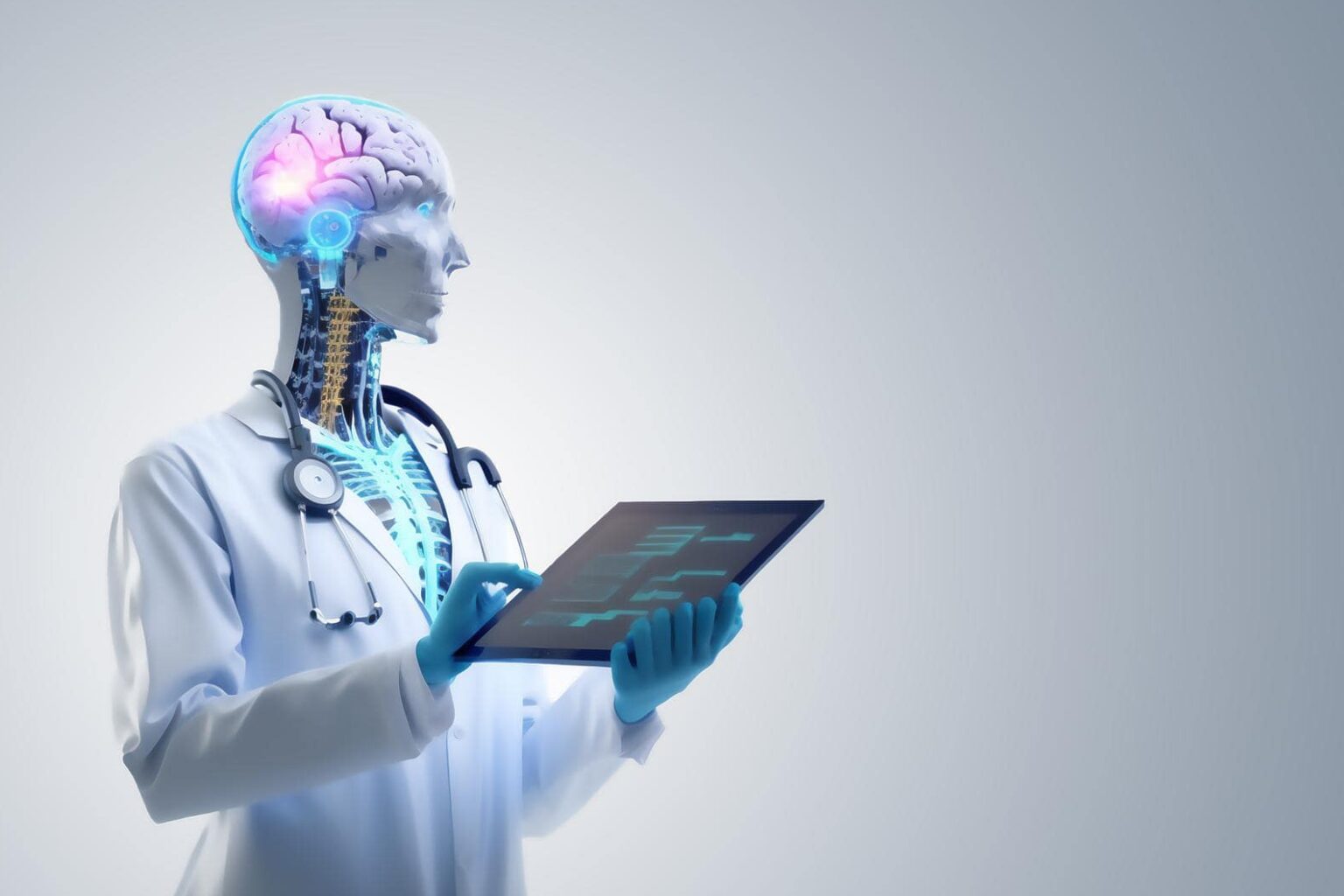Artificial intelligence (AI) is indeed transforming diagnosis and treatment in healthcare. The integration of AI technologies holds immense potential to enhance medical practices, improve patient outcomes, and streamline healthcare processes. Here are some key ways AI is making an impact in healthcare:
- Medical Imaging Analysis: AI algorithms can analyze medical images such as X-rays, MRIs, and CT scans, assisting radiologists in detecting and diagnosing various conditions. AI-powered image recognition and pattern analysis algorithms can help identify abnormalities, tumors, and other diseases with high accuracy and speed, reducing human error and improving early detection.
- Precision Medicine: AI enables personalized treatment approaches by analyzing large sets of patient data, including genetic information, medical records, lifestyle factors, and treatment outcomes. Machine learning algorithms can identify patterns and correlations within these datasets, leading to more accurate diagnoses, tailored treatment plans, and improved patient outcomes.
- Drug Discovery and Development: AI plays a crucial role in accelerating the drug discovery process. Machine learning algorithms can analyze vast amounts of biological and chemical data to identify potential drug candidates, predict their efficacy, and simulate their interactions with the human body. This helps researchers prioritize the most promising compounds, reducing the time and cost involved in developing new drugs.
- Virtual Assistants and Chatbots: AI-powered virtual assistants and chatbots are being used to improve patient care and access to information. These tools can answer patient queries, provide symptom-based advice, and offer guidance on self-care. They also assist healthcare providers by automating administrative tasks, appointment scheduling, and triaging patients, thereby optimizing workflows and reducing the burden on medical staff.
- Predictive Analytics: AI algorithms can analyze large datasets to identify patterns and predict health outcomes. By analyzing electronic health records, vital signs, and other patient data, AI systems can predict the risk of developing certain diseases, identify early warning signs, and recommend preventive measures. This helps healthcare providers intervene early and design targeted interventions for at-risk individuals.
- Remote Monitoring and Telemedicine: AI-powered wearable devices and remote monitoring systems enable continuous tracking of patients’ health parameters. Machine learning algorithms can analyze the collected data, detect deviations from normal ranges, and alert healthcare professionals to potential issues. Telemedicine platforms leverage AI to enable remote consultations, making healthcare more accessible and reducing the need for in-person visits.
- Administrative Efficiency: AI technologies can automate administrative tasks such as documentation, billing, and insurance claim processing. Natural language processing (NLP) algorithms can extract relevant information from medical records, automate coding, and improve accuracy in billing and claims. This streamlines administrative workflows, reduces paperwork, and frees up healthcare providers’ time for patient care.
It is important to note that while AI has tremendous potential, it should complement the expertise of healthcare professionals rather than replace them. Ethical considerations, data privacy, and algorithm transparency are also critical in the deployment of AI in healthcare to ensure patient trust and safety.



